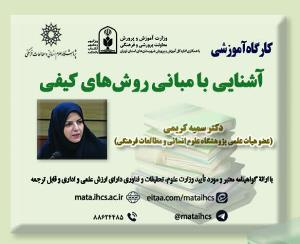مصلحت و حاکمیت سیاسی: قدسی یا عرفی (مقاله علمی وزارت علوم)
درجه علمی: نشریه علمی (وزارت علوم)
آرشیو
چکیده
دریافتی متأخر و نسبتاً رایج از طرح مفهوم مصلحت در تجربه حکمرانی جمهوری اسلامی، دریافت سکولار از آن است. مطابق این دریافت طرح مفهوم مصلحت به معنای فراروی از ظرفیت های موجود در فقه شیعه و به رسمیت شناختن عقل سکولارِ عرفی در تدبیر مُلک است. این مقاله بر خلاف این رویکرد و در پاسخ به آن استدلال می کند که طرح این مفهوم برآمده از مسئله ای با قابلیت صورت بندی فقهی است: تفکیک میان حوزه دولت و حوزه تعاملات میان فردی، امتناع استنتاج مناسبات ناظر به دولت از عقود و ایقاعات مشروع در حوزه تعاملات میان فردی و در نهایت تقدم اولی بر دومی در موارد تزاحم. بر اساس تفسیر مختار این نوشتار، حدود اختیارات و شئون دولت همچون مداخله در تنظیم حدود مالکیت، حفظ محیط زیست و به عبارت عام حفظ و حراست مصالح اسلام، از حقوق و اختیارات ناظر به مناسبات میان فردی، قابل استنتاج نیست؛ بلکه دولت، در این معنا، شرط تحقق حقوق ناظر به مناسبات میان فردی است. پس این منازعه در قالب تزاحم میان حقوق خصوصی و عمومی و تقدم دومی بر اولی با نظر به مقاصد شریعت قابل صورت بندی است؛ تفکیک میان حق عمومی و خصوصی، تفکیکی ضروری برای طرح مفهوم حکومت است که بی توجهی به آن، به امتناع استنتاج حکومت و شئون آن از ادله فقهی و در نهایت به تفسیری سکولار از حاکمیت سیاسی منجر می شود.Expediency and Government: Sacred or Secular
A recent, relatively common conception of the expediency in the Islamic Republic's governance experience is the secular one. According to this conception, the formation of the expediency requires going beyond the existing capacities of Shia jurisprudence and recognizing the common secular reason in the governance. Contrary to this approach and in response to it, this article argues this concept arises from a problem expressible in a jurisprudential framework: the separation between the domain of the government and the domain of interpersonal interactions, the refusal to infer relations regarding the government from legitimate contracts in the domain of individual interactions, and ultimately the priority of the first over the second in the cases of conflict. So, the regulation of property limits, environmental protection, and in general, the preservation and protection of the interests of Islam, cannot be inferred from the rights and powers related to interpersonal relations; Rather, the government in this sense is a condition for the realization of rights related to interpersonal relationships. Therefore, this conflict can be formulated in the form of conflict between private and public rights and the priority of the latter over the former, considering the purposes of Sharia; The distinction between public and private right is necessary for the concept of government, which neglecting it leads to the refusal to infer the government and its affairs from jurisprudential evidences and ultimately leads to a secular interpretation of government.







